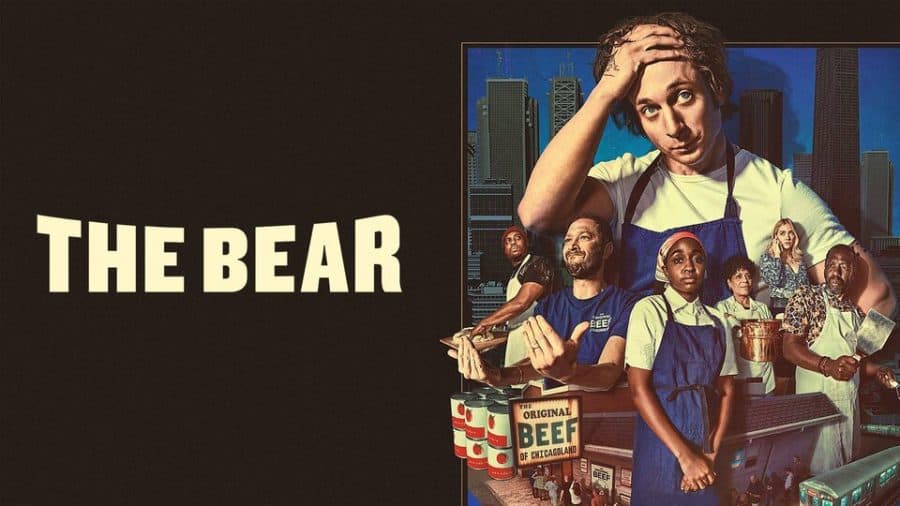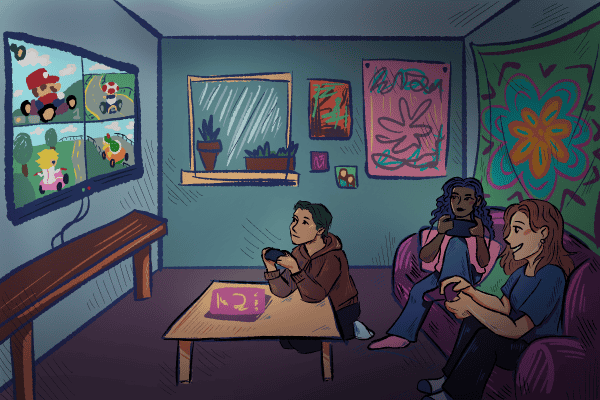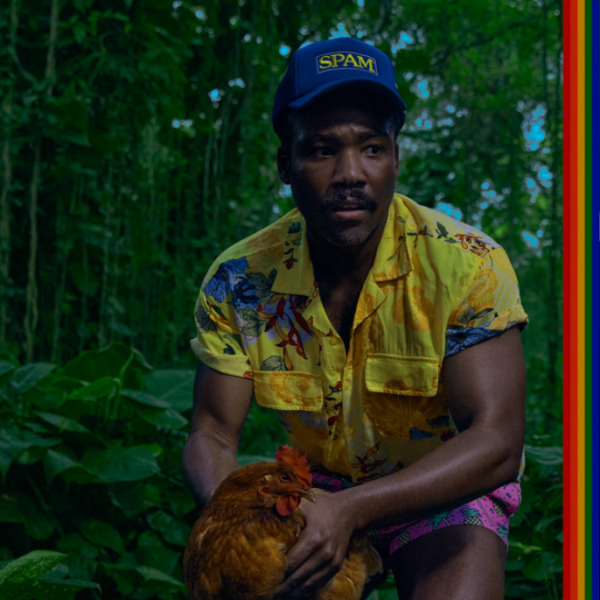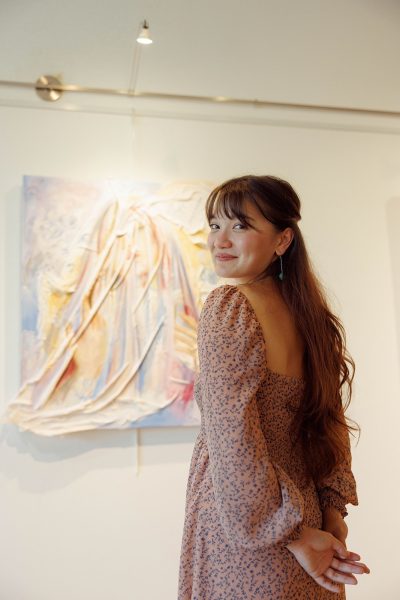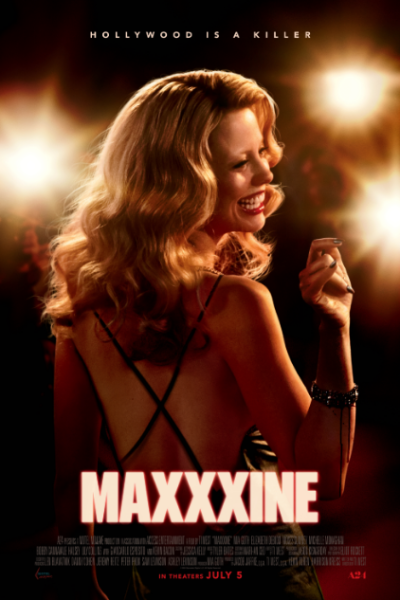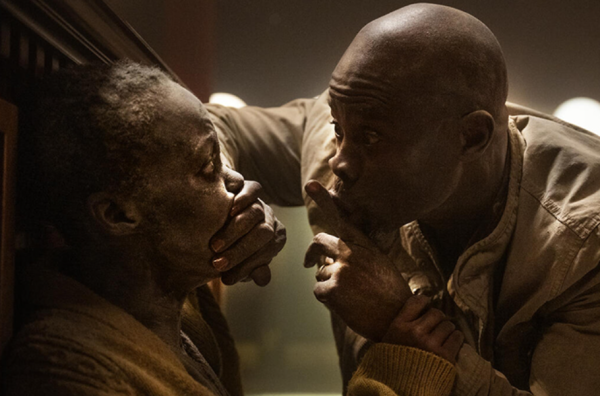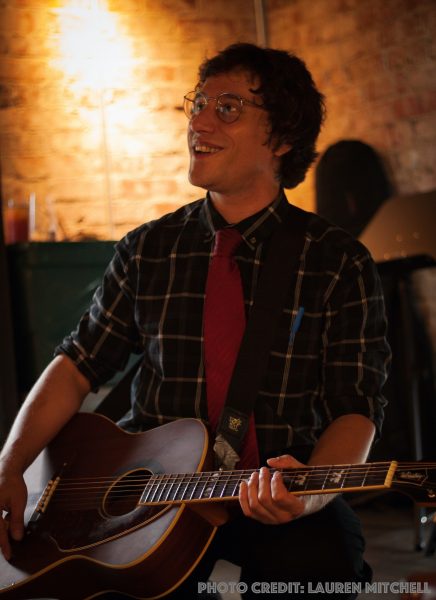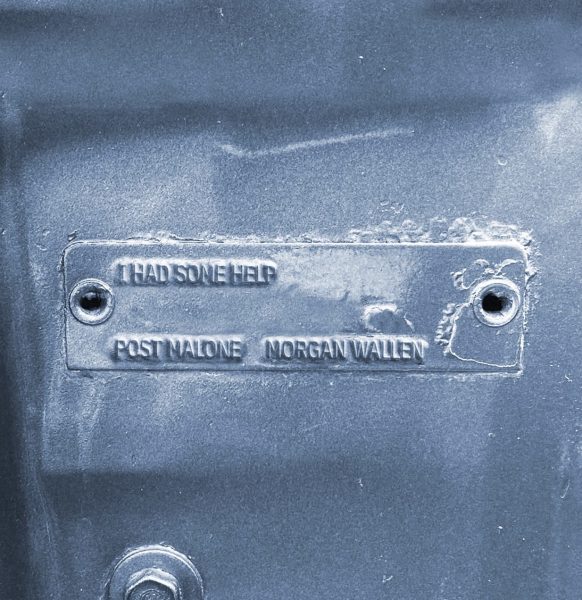‘The Bear’ delivers a stunning second course
June 28, 2023
When it premiered last summer, FX’s comedy-drama “The Bear” received praise for its realism, particularly its meticulous depiction of a chaotic restaurant kitchen.
“Kitchen work has rarely been portrayed this convincingly onscreen,” The New Yorker’s Helen Rosner wrote. The lingo, the clutter, the particular intimacy that’s forged from the stress of pulling off food service’s never-ending magic trick — it was all there.
Jeremy Allen White played Carmen “Carmy” Berzatto, a fine-dining chef who returned to Chicago after his older brother Mikey’s suicide and attempted to save the latter’s floundering sandwich shop, the Original Beef of Chicagoland. White’s brilliant portrayal of anxiety contributed to the show’s edge-of-your-seat intensity, as did rapid-fire sequences of messy, overlapping dialogue.
This intensity and attention to detail were compelling enough that the show’s writers could be forgiven for occasionally leaving the plot on the back burner. But the first season’s out-of-nowhere resolution — which brought the Beef’s financial troubles to an abrupt, if not permanent, end — left me wondering whether “The Bear” could maintain its frenetic allure for a second season.
Indeed, much of the new season, which began streaming June 22 on Hulu, progresses at a slower pace than the first. That’s not to say it isn’t entertaining. As the crew prepares to open the new restaurant — aptly called the Bear — that will take the Beef’s place, its members split up to scour the city for menu ideas, attend culinary school, or train in fancy kitchens run by Carmy’s haute-cuisine friends, two of whom are played by Will Poulter and Olivia Colman.
Meanwhile, Carmy reignites a relationship with his high-school classmate Claire, played by Molly Gordon. There’s something comforting about watching these characters escape the frying pan, even when we suspect they’re headed for the fire.
The relentless adrenaline of the first season returns in the sixth episode, an hourlong flurry of cameos that takes us back to Christmas at the Berzattos’ several years earlier.
Jamie Lee Curtis delivers a terrifically unhinged performance as Carmy’s mother, Donna, whose harried tyranny in the kitchen, as she prepares an elaborate Feast of the Seven Fishes, illuminates Carmy’s own bouts of managerial despotism. Jon Bernthal plays Mikey, in the throes of addiction, with nuance and pathos. Among the faces at the almost unbearably tense dinner table are Bob Odenkirk, Sarah Paulson and — get this — John Mulaney. It’s stressful and unpredictable and one of the best television episodes I’ve ever seen.
Season 2 of “The Bear” is replete with standout performances. White continues to render Carmy’s anxiety with breathtaking believability, while his tender, if underdeveloped, relationship with Claire yields more insight into the fears that motivate him.
Ayo Edebiri, who plays Sydney, Carmy’s awkward, ambitious sous-chef, comes into her own alongside her character. As Richie, Mikey’s blusterous best friend and a staff member at the restaurant, Ebon Moss-Bachrach serves up a heartful portrait of a middle-aged man struggling to redefine himself. Just about all the characters emerge as sympathetic, yet there’s no shortage of conflict.
As in the first season, cheesy devices occasionally break the show’s otherwise strong immersion. An interior wall collapses as a character is confiding a secret, causing the secret to be revealed to everyone on the other side of the wall; the final minutes of the season feature a bit of dramatic irony that feels more than a little contrived. These issues don’t negate the show’s excellence.
The cinematography of “The Bear,” which evinces more than a hint of creator Christopher Storer’s documentarian background, remains fresh in Season 2. We get some more of the clever montages, food-prep sequences, and claustrophobia-inducing kitchen close-ups that viewers will remember from Season 1, but wider, outdoor shots deepen the show’s Nordic-noir aesthetic and provide a sense of zooming out.
If claustrophobia dominated the first season, which saw the characters hemmed in by grief and financial stress, the wide-open possibilities of a new beginning add a marked strain of agoraphobia to the second.
A wrenching finale completes the second season’s dramatic arc but leaves a couple of cliff-hangers, inspiring hope for a third season. With the new restaurant up and running, what’s next for “The Bear”?
Your guess is as good as mine, but one thing is clear: The show, like its characters, has proved it can reinvent itself.

